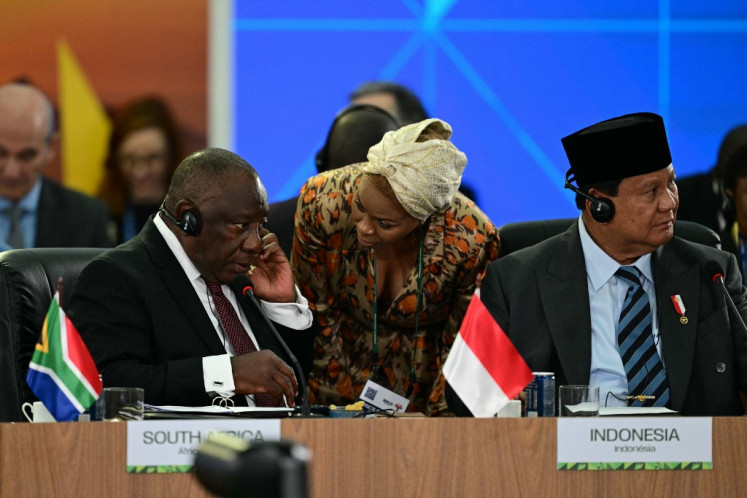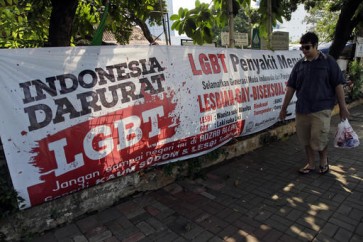Popular Reads
Top Results
Can't find what you're looking for?
View all search resultsPopular Reads
Top Results
Can't find what you're looking for?
View all search resultsSurveillance nation: Behind arrest of gays in Aceh
Surveillance by and for individuals has inevitably been powerful in controlling and policing non-normative sexualities.
Change text size
Gift Premium Articles
to Anyone
O
n the night of March 28, unidentified vigilantes invaded a house to arrest two men aged 20 and 23 for allegedly having same-sex relationships. A video circulating in social media shows the vigilantes kicking, slapping and insulting the pair before they were brought to and detained at a sharia police facility. Reports said the chief inspector has pushed the men into confessing that they were gay and thus would be detained before being tried under Aceh’s Islamic Criminal Code (Qanun Jinayah).
Homosexuality continues to become Indonesia’s obsession. In 2016 conservative groups tried to outlaw homosexuality at the national level, but the eventual penalty against the above men would be the first caning of men declared to be gays – a punishment under sharia, which is authorized in Aceh under its special autonomy law, following the agreement between the Indonesian government and the Free Aceh Movement (GAM) that brought peace in 2005.
The law criminalizes liwath, defined as anal penetration between men and carries a punishment of 100 lashes, a fine of 1,000 grams of gold or 100 months in prison. Female homosexuality and heterosexual extramarital sex are also inescapable from the law. The former is penalized by categorizing and defining female same-sex relations as musahaqah —the act of two or more women rubbing their body parts or vagina for sexual pleasure, while the latter can be criminalized just because of ikhtilath, intimacy in the form of kissing, touching, and hugging.
Despite its ambiguity and confusion whether it targets sexual practice (anal sex) or sexual identity (gay), the recent arrest of the above men demonstrates how the law can easily be applied to both aspects. When the men were detained in the sharia facility, the report indicated that they were questioned and interrogated about their intimate lives, which in turn led them to confess about their own sexuality. What is even more disturbing from this incident is that the people who detained the pair were actually their neighbors who were increasingly suspicious and caught the intimacy between them.
French philosopher Michel Foucault, in History of Sexuality (1978), characterizes the peculiarity of our modern society — we are actually obsessed with sex and demand sex to be spoken of, while simultaneously exploiting it as a secret. Sex nowadays is not a domain of experts, like psychiatrists or medics, but has become everyone’s obsession and business, particularly when power has been dispersed to people through norms, practices, and state policies.
One of the pivotal contributions of Foucault is that power is hence everywhere — it passes through us and subsequently makes us its agent. Religious norms and socio-cultural norms that prohibit and conflate sex with immorality and sins shape what we believe as the “truth of sexuality”. When this “truth” is violated against, we feel the immediate need to take action.
As a consequence, as the scholar Sharyn Graham Davies demonstrates in Surveilling Sexuality in Indonesia (2015), that when it comes to sex, people internalize and adhere to authoritative norms. They become self-regulating, and hence also become the agents of power.


















